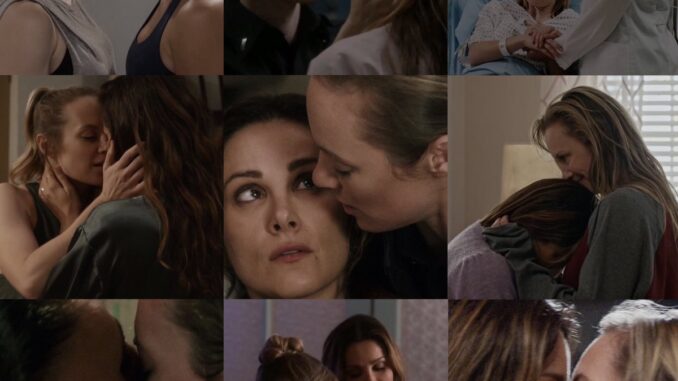
The Unfurling Flame: How Marina Ignited a New Era for LGBTQ+ TV
In the often-predictable landscape of network television, where romance typically adheres to well-worn heteronormative paths, a quiet revolution has been unfolding in the heart of Seattle's fictional Station 19. The love story between Maya Bishop, the fiercely driven and often emotionally guarded fire captain, and Carina DeLuca, the compassionate, vivacious Italian OB/GYN, has not merely "heated up"; it has become a crucible, forging a new gold standard for LGBTQ+ representation on screen. Their romance, affectionately dubbed "Marina" by a global fanbase, has undeniably changed the game for queer storytelling, demonstrating that complex, enduring, and deeply human love knows no gender.
From their initial, tentative flirtations, an electric current was palpable. Maya, a woman accustomed to compartmentalizing her emotions and channeling everything into her career, found herself disarmed by Carina's effervescent charm and disarming honesty. Carina, conversely, was drawn to Maya's intense focus, her hidden vulnerability, and the undeniable fire that burned beneath her stoic exterior. Their early encounters were a masterclass in slow-burn chemistry, each glance, each shared laugh, each touch laden with unspoken desire. It wasn't a sudden, explosive passion, but an unfurling, like a slow-burning fuse leading to an inevitable, beautiful conflagration. The "heating up" wasn't just physical; it was emotional, intellectual, and profoundly personal, chipping away at Maya's carefully constructed walls and revealing the tender heart beneath.
What truly elevated Marina beyond a fleeting storyline was the show's commitment to portraying their relationship with unflinching honesty and depth. Their journey was not a saccharine fairytale, nor was it defined solely by their queer identities. Instead, it was a tapestry woven with universal threads of struggle and triumph. We witnessed Maya's battles with ambition, her crippling fear of failure, and the deep-seated trauma from her upbringing, all of which put immense pressure on their bond. Carina, ever the anchor, provided unwavering support, pushing Maya towards self-acceptance while also setting firm boundaries, refusing to be consumed by Maya's internal struggles. Their path to marriage involved navigating demanding careers, family drama (Carina's brother, Andrew DeLuca's mental health crisis), and the profound emotional rollercoaster of IVF as they pursued parenthood. These were not "gay problems"; they were human problems, lending their story an undeniable authenticity that resonated far beyond the LGBTQ+ community.
This commitment to depicting a fully fleshed-out, flawed, and yet ultimately resilient love is precisely how Marina changed the game for LGBTQ+ TV. For too long, queer relationships on screen were relegated to tragic ends, fleeting affairs, or tokenistic gestures. The "bury your gays" trope, where LGBTQ+ characters were disproportionately killed off or subjected to undue suffering, cast a long shadow over queer representation, fostering a sense of dread and hopelessness among viewers. Marina shattered this paradigm. They were allowed to have a future. They married, bought a home, weathered severe storms, and openly pursued a family. Their happiness, their domesticity, and their enduring partnership became a beacon of hope, demonstrating that queer love stories could not only exist but thrive on mainstream television, offering a positive and aspirational vision.
Furthermore, their prominence on a major network show like Station 19, part of the immensely popular Shondaland universe, gave their story unparalleled reach. This wasn't a niche cable drama; it was primetime viewing, accessible to millions. This widespread visibility contributed significantly to the normalization of queer relationships, allowing audiences who might not otherwise seek out LGBTQ+ narratives to witness a beautiful, passionate, and stable same-sex marriage unfold before their eyes. It chipped away at prejudice, fostered understanding, and showed that love, in its purest form, transcends labels.
In essence, Maya and Carina’s romance became more than just a plotline; it became a cultural touchstone. It illustrated that queer characters deserve the same nuanced storytelling, the same emotional arcs, and the same opportunities for lasting happiness as their heterosexual counterparts. Their journey, marked by both fiery passion and quiet devotion, by profound challenges and unwavering commitment, has redefined what is possible for LGBTQ+ representation. Marina didn't just heat up; they set the screen ablaze, illuminating a brighter, more inclusive path forward for the future of television.